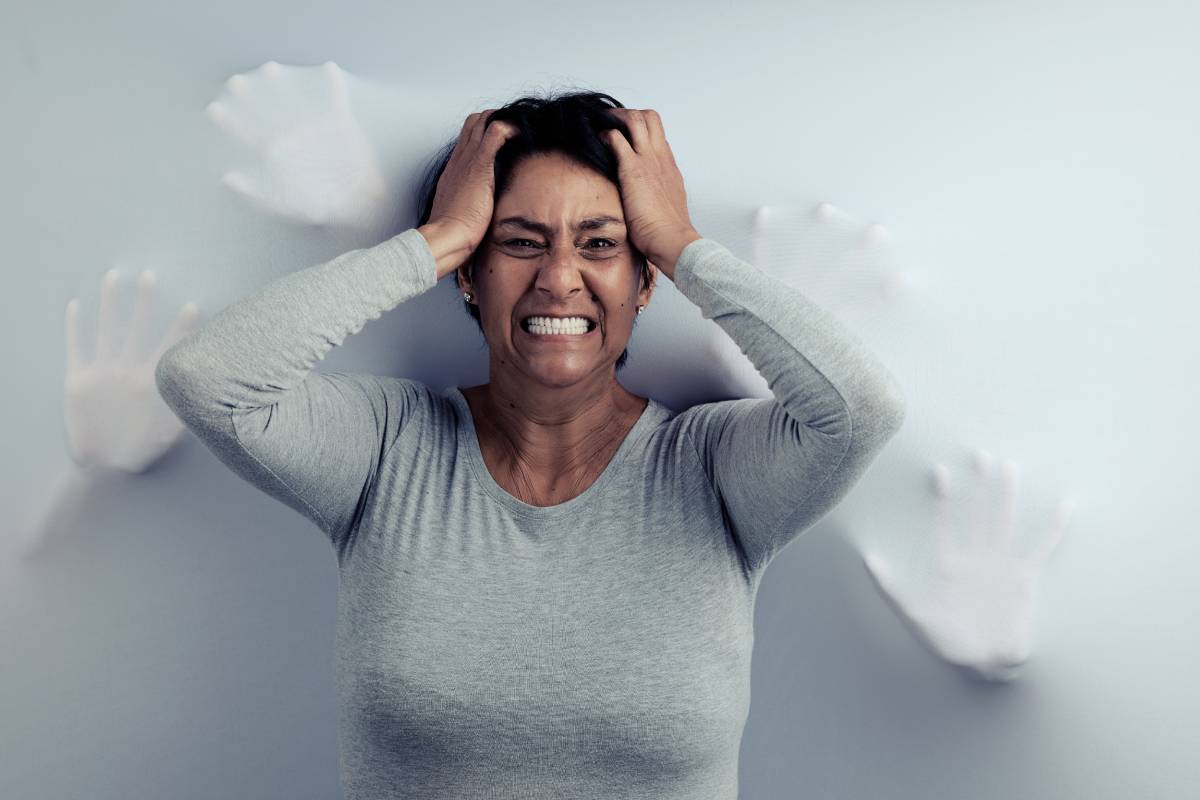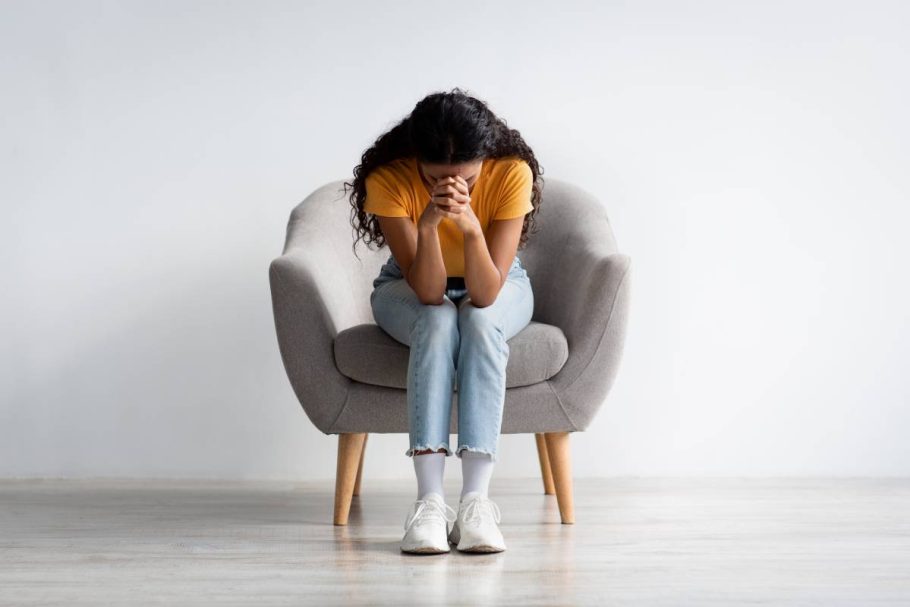A new perspective on therapy: You don’t have to be sad to seek help, plus answers to key questions about therapy goals and knowing when to Start.
When people hear the word “therapy,” they often picture someone crying on a couch, emotionally drained, overwhelmed, and deeply sad. While therapy can absolutely be a place to process sadness, grief, or trauma, this narrow view leaves out a huge part of what therapy is truly about.
In reality, you don’t have to be broken, depressed, or at your lowest point to seek therapy. Much like how we go to the doctor for check-ups or hire a personal trainer to get stronger, therapy can be part of a proactive approach to mental and emotional wellness.
It can be a space for growth, reflection, and even creativity a place to explore your thoughts, challenge your patterns, and gain clarity about your life. Choosing therapy is not a sign of weakness; it’s a commitment to self-awareness and long-term wellbeing.
Do You Need to Be Sad to Go to Therapy?

Sadness is only one of many reasons people go to therapy. Therapy isn’t just about treating illness it’s also about promoting growth, awareness, resilience, and quality of life.
Here are just a few non-sadness-related reasons people go to therapy:
- To improve relationships – Whether it’s romantic, family, or work relationships, therapy can help you understand communication patterns and build stronger connections.
- To manage stress – You might be doing fine emotionally, but still feeling overwhelmed or constantly on edge.
- To gain self-awareness – Many people enter therapy simply to better understand themselves—their habits, reactions, or personal values.
- To build coping skills – Life throws curveballs. Therapy can help you be more prepared to handle them.
- To set and reach goals – You don’t need a crisis to want to grow, achieve more, or change something about your life.
- To explore identity or life direction – Questions like “Who am I?” or “What do I really want in life?” are valid reasons to talk to a therapist.
In other words, therapy is not just a last resort. It can be a powerful tool for personal development, clarity, and peace of mind even when things are going “okay.”
What Is the Main Goal of Therapy?

The core goal of therapy depends on the individual’s needs, but generally, the main goal is to help you live a more fulfilling, balanced, and meaningful life. That can look different for each person.
Here are some of the overarching purposes therapy can serve:
1. Understanding Yourself
Therapy gives you the space and tools to understand your thoughts, emotions, and behaviors. When you gain insight into your inner world, you can begin to make conscious choices rather than acting out of old habits or automatic responses.
2. Healing From the Past
Many people use therapy to process past experiences—whether it’s childhood trauma, heartbreak, grief, or painful events. Talking through these moments can bring a sense of closure and healing.
3. Improving Mental Health Symptoms
Yes, therapy is a highly effective way to treat conditions like anxiety, depression, PTSD, OCD, and more. A therapist can help you manage symptoms and explore the root causes, using evidence-based methods.
4. Enhancing Relationships
Good therapy helps you identify unhealthy patterns in how you relate to others, set boundaries, and learn healthier ways to communicate and connect.
5. Building Coping Strategies
Life isn’t always easy. Therapy can equip you with healthy tools to manage stress, change, and uncertainty whether it’s a job loss, parenting challenge, health issue, or transition in life.
6. Living in Alignment With Your Values
One of the deeper outcomes of therapy is learning what truly matters to you, and aligning your decisions and lifestyle with those values. It’s about creating a life that feels authentic and intentional.
How Do I Tell If I Need Therapy?

There’s no one-size-fits-all answer to this. Some people seek therapy after a major life event, while others go when something just doesn’t “feel right.” You don’t need to wait for a breakdown to give yourself permission to get support.
1. You feel stuck.
If you keep repeating the same patterns or can’t seem to move forward in some area of your life, therapy can help you get unstuck.
2. You’re overwhelmed by stress or emotions.
Even if it’s not clinical depression or anxiety, constant irritability, burnout, or emotional exhaustion are all valid reasons to seek help.
3. Your relationships are suffering.
If you find it hard to connect with others, feel isolated, or are constantly in conflict, therapy can uncover the dynamics behind it.
4. You’ve experienced a loss or big change.
Divorce, losing a loved one, changing careers, or even moving to a new place can stir up unexpected emotions. Therapy can help you adjust.
5. You’re curious about yourself.
You don’t need a problem to go to therapy. Curiosity alone about your emotions, reactions, or dreams is a great starting point.

6. You’re not feeling like yourself.
Sometimes, the signs are subtle: low motivation, disconnection from things you used to enjoy, a vague sense that something’s “off.” These are all signs that something deeper may need attention.
How Nature and Ecopsychology Enhance Therapy
Ecopsychology, which explores the bond between humans and nature, has become a valuable tool in therapy. Many people find that connecting with nature fosters healing and self-awareness. Spending time outdoors, whether through guided therapy or simply reflecting on nature, can provide clarity and peace.
Nature-based therapy uses the outdoors to promote emotional healing, allowing individuals to see how nature reflects their psychological states. Integrating ecopsychology in therapy helps people realize the connection between their well-being and the planet’s health, promoting individual healing and environmental consciousness.
Therapy Is for Everyone
There’s still a lingering stigma that therapy is only for people who are “not okay.” But in truth, therapy is for everyone just like how physical fitness isn’t only for people recovering from injury.
In fact, some of the most emotionally healthy and self-aware people you know might be actively seeing a therapist. Therapy is an act of self-respect, not weakness. It’s choosing to care about your emotional and mental life, just as you would your physical health.
Final Thoughts
So, do you need to be sad to go to therapy? Absolutely not. You can be curious, stuck, hopeful, stressed, growing, or even feeling totally fine and still find value in therapy.
What’s the main goal of therapy? To help you better understand yourself, heal, grow, and live a more fulfilling life on your terms.
And how do you know if you need therapy? If the thought has crossed your mind, if you’re craving clarity or change, or if you just want to feel more grounded in your life—that’s reason enough.
Therapy is a space where you’re allowed to be honest, messy, hopeful, confused, or excited. It’s not about having something “wrong” with you it’s about investing in the most important relationship you’ll ever have: the one with yourself.





